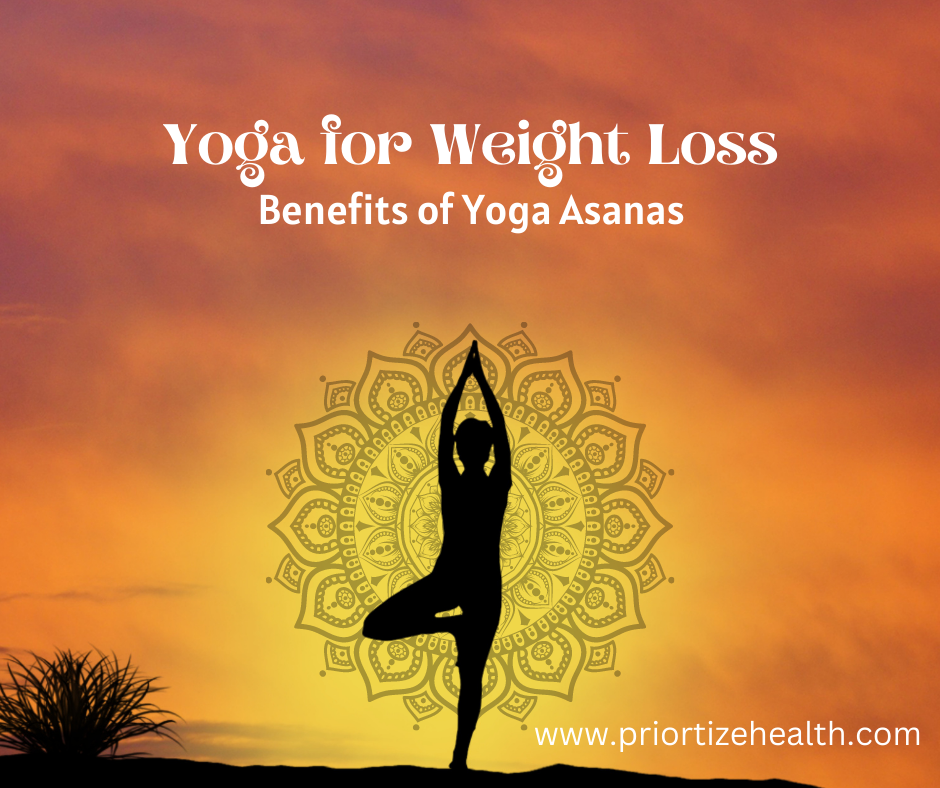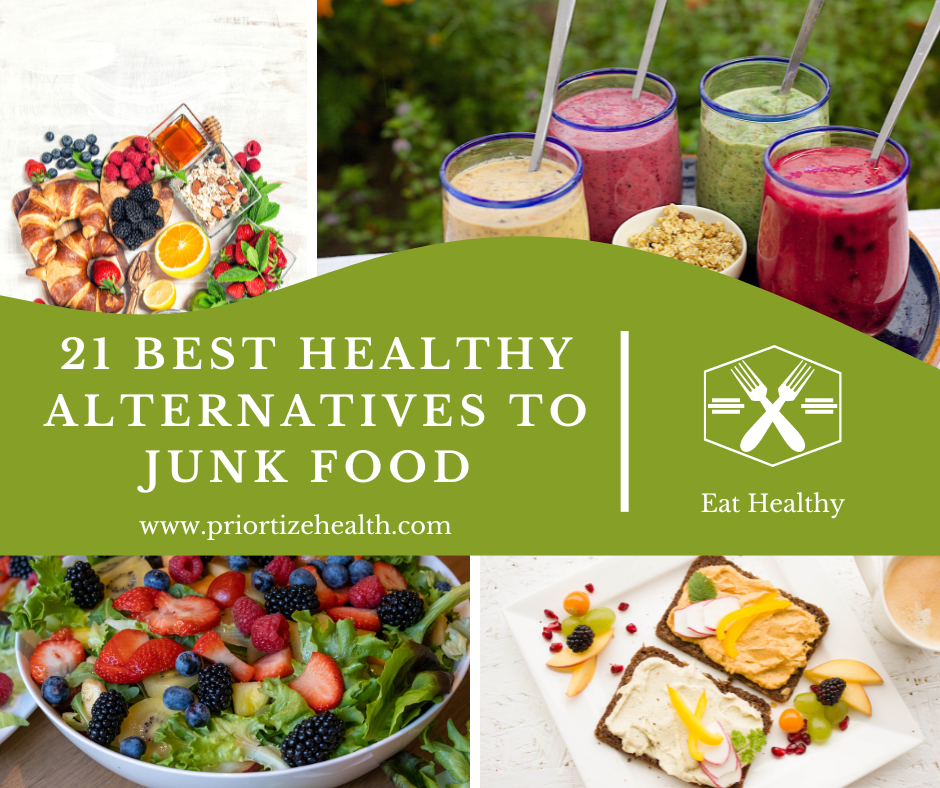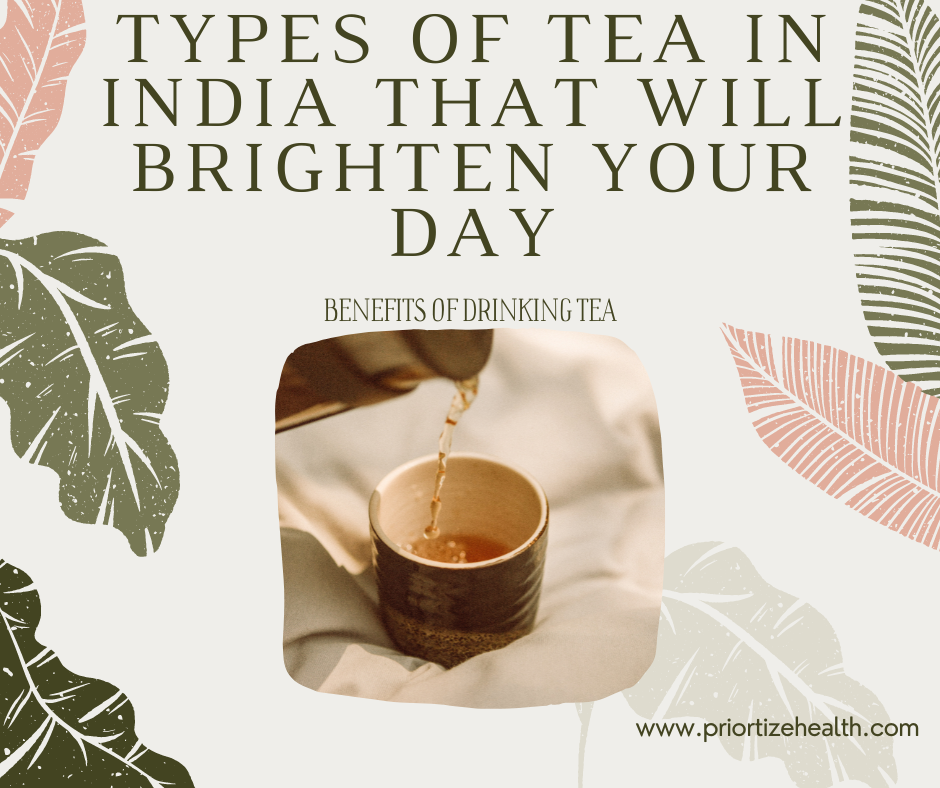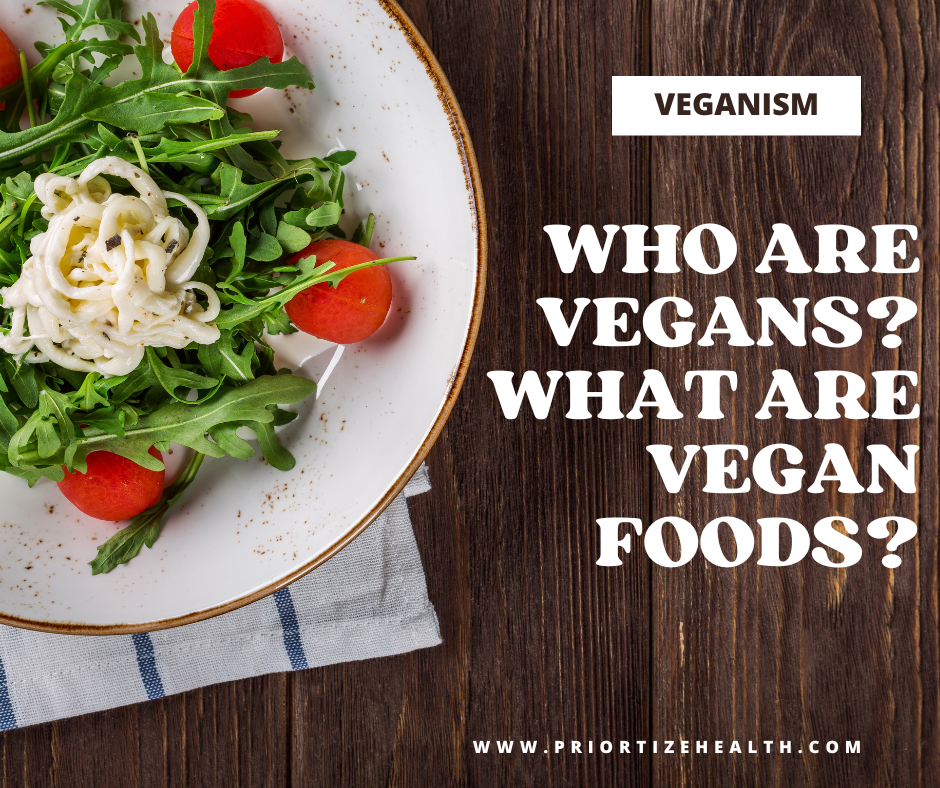
Who are Vegans? What are Vegan Foods?
The term “vegan” can be seen a lot in the common discourse now a days. It is different from “vegetarian” and “non-vegetarian” sections. UN has already published a report in the year 2010 highlighting the significance of veganism in future. Though the vegan society was set up in 1944, its history goes back much earlier when meat, dairy product and other animals derived produced were stopped for consumption. There have been evidences of vegetarianism from all major ancient civilisations including Indus valley and Babylon civilisations. But in the recent past, people have gone for extreme form of vegetarianism and refrained from using any animal products. India is one of the leading exporters of dairy products and therefore, the increasing trend of veganism may have adverse impacts on India’s dairy sector. Let’s understand as to who are vegans and what are vegan foods.
The vegans give three main reasons behind refrain from using animal products:
- Cruelty on animals
- Environmental impacts of non-vegetarianism
- Positive impacts on health
Who are Vegans?
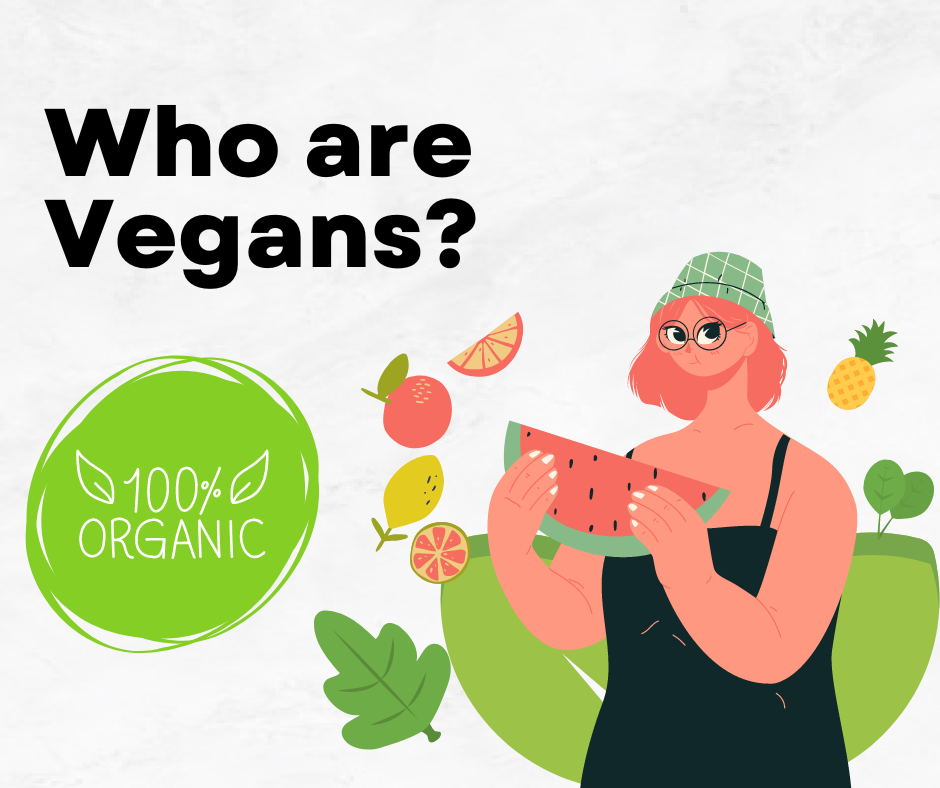
Vegans are persons who consume vegetarian diet that excludes animal-derived food items. They don’t use animal products and by-products. Vegans believe using these items is not ethical. It is against the environment. They focus on health intention. They are keen for a human world. Vegans try to support relief to animal abuse and growing natural disasters. They also refuse to use animals in different forms. It may be in form of horse-drawn carriages, circus, etc. Vegans believe animal should be free from human use. We should not use animals in any form such as entertainment, clothing. Vegans don’t use animals in food or science also. It doesn’t matter how you house or bred the animals.
Vegans eat food items like tofu, soy-milk, hemp seeds, nutritional yeast. Fermented foods like tempeh, kimchi, etc are well-liked by vegans. A healthy vegan diet includes:
- Consume some healthy substitute like soya milk, yogurt, etc.
- Drink a lot of liquids (at least 2-3 litres in a day)
- Eat a variety of fruits in a day
- Add pulses, beans, and other protein rich food items in your diet.
- Increase whole grains in your diet
- Eat in small amounts
- Pick unsaturated oils and spreads for cooking food
Vegan diet is rich in many nutrients. But there are some nutrients that may be low in vegan diet, such as:
- Calcium
- Omega-3 fats
- Zinc
- Vitamin D
- Iodine
- Vitamin B12
- Iron, etc.
So, it’s better to consult the doctor and a certified nutritionist to discuss about the same. This will help in avoiding deficiencies in the body.
Reasons for going Vegan
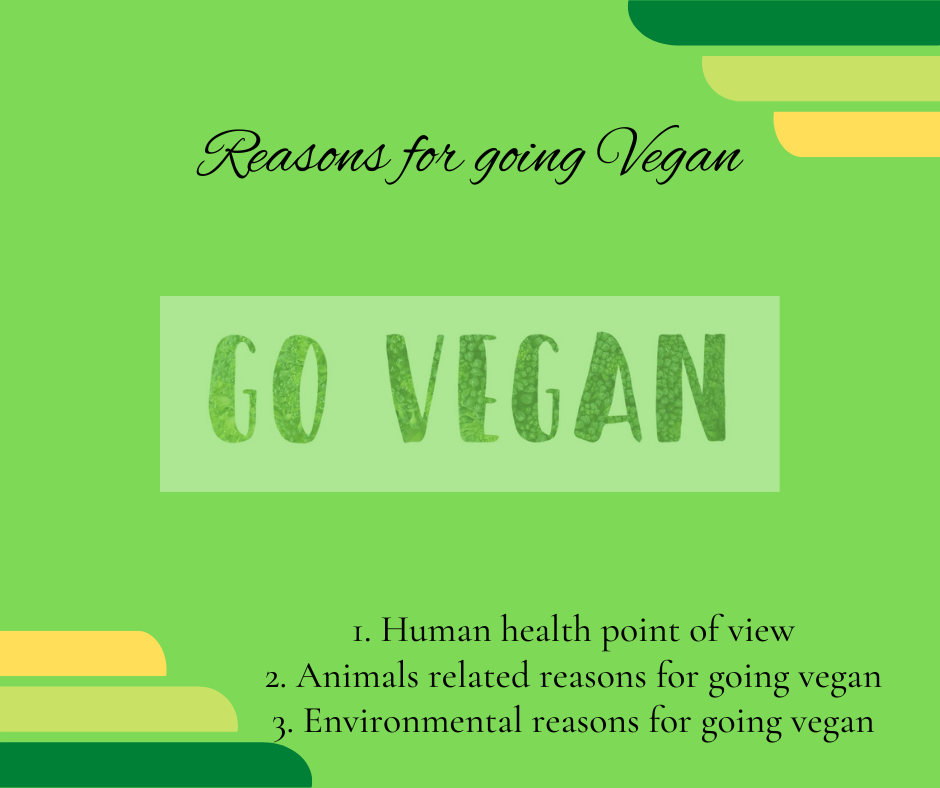
There are many reasons for going vegan. Let’s start by understanding how it benefits human health if you go vegan. Then let’s realise the pain and suffering animals have to bear if we don’t become vegan. Let’s also understand the reasons for going vegan from environment point of view.
1. Reasons for going vegan from human health point of view
There are ample of reasons on why we should cut off animal related food items from our diet. Let’s understand them in brief:
A) Get rid of bad cholesterol
Animal based products are high in cholesterol. It grows the chances of coronary heart disease. Plant based products do not have cholesterol. Eating plant-based foods reduces our cholesterol levels. This lowers the chances of heart diseases.
B) Boosts concentration
Plant-based foods have the essential nutrients that boost your concentration. Some of these foods are almonds, leafy greens, etc. There is a link between the brain and body. So, the manner in which treat our body, affects your brain and emotions.
C) Reduces chances of food poisoning
Food poisoning may occur due to contamination from salmonella or e coli bacteria. We can find these items in faces of animals. Vegetables may also get contaminated by these toxins. But the chances of contamination are more in animal-based foods than in vegetables.
D) Prevents osteoporosis
Vegan food items contain good amount of calcium. It is in a perfect digestible form. This can prevent osteoporosis. Vitamin C, vitamin D, and potassium are essential nutrients required to prevent osteoporosis. These all are present in vegan food items.
E) Increases healthy hormones
Hormones are essential in controlling the body’s internal system. Vegan diet can boost a healthy, balanced hormone system. Gastrointestinal hormones increase after people consume vegan foods as compared to animal-based foods. This is helpful in weight management, and controlling sugar.
F) Reduces toxins
Animal-based foods have bacteria and chemicals that could harm your health. Some of these may damage your body. Eating plant-based foods reduces toxins, keeps your liver clean. This is beneficial in living a healthy lifestyle.
G) Keeps your skin healthy
Vegan foods are rich in antioxidants. Antioxidants help to fight from free radicals that help to keep skin healthy. This helps to keep the skin glowing and maintain it’s oil and moisture balance. Plant-based foods are easy to digest. This helps to reduce strain on the body and skin.
H) Saves money
Plant-based foods are cheaper than animal-based foods. Vegan food can reduce your food bill by 40% compared to animal-based foods. You can buy groceries in bulk to cut down your cost. The cost of fruits and vegetables are less, if purchased from the farmer.
2. Animals related reasons for going vegan
Some people keep animals in unhealthy and intolerable conditions. People are becoming aware of how to keep animals in monstrous environment. So, it’s essential to stop torturing the animals for the following reasons:
A) Dairy brutality
It is fact that dairy industry is more brutal compared to the meat industry. Humans force females in the dairy industry to conceive pregnancy. The reason behind this is that they lactate. Humans use this milk to sell in the market. They keep female cows away from the new born ones. The intention behind this is that they can sell milk in the market.
B) Selective breeding
Selective breeding gives rise to many problems in farmed animals in the entire world. Now a days people bred cows to supply unnatural milk. This results in swollen or distended udders and unbearable conditions like mastitis. Selective breeding also gives rise to incurable conditions. These conditions may be like broken legs and heart failure.
C) Battery cages
Battery cages are small in size where birds are staying in ample quantity. They do not have space to move around. The birds have to stick their neck to wire bars to eat food. This process harms their feathers and the skin gets raw and painful. The birds face problems in carrying out their natural habits and practices. They may be dust-bathing, perching, roosting and foraging.
D) Gestation crates
Gestation crates is a heartless manner to treat animals. A pregnant pig has to stay in this cage for a period of four months. They can only sit, stand and eat. There is no space to move around. This process repeats once they give birth. Once these animals are not able to produce babies people slaughter them. This is heights of torturing animals.
E) Tail docking
Tail docking is cutting of tail of animals. People use docking irons, emasculators, or by surgical excision to cut the tail. It is very painful for animals. Tail docking helps people for therapeutic, cosmetic reasons and/or to prevent injury. The process may create infection, bleeding, pain and nerve damage.
F) Forced molting
The factory farm production demands a high volume of eggs. They cannot reduce the profit levels. So, they force the hens more eggs. People adopt unnatural process for increasing the quantity of laying eggs. Hens molt (lose feathers) as the season changes. They starve for food and water. The intention here is to force them to grow new feathers.
G) Mutilations at factory farms
People practise mutilations at factory farm on animals to raise food. They keep the animals in small and congested areas. Humans multilate the bodies of animals without giving them anesthesia or pain killers. The common issues are dehorning of cattle and goats and trimming beaks of hens laying eggs. This procedure causes chronic and acute pain to the animals.
3. Environmental reasons for going vegan
Animal agriculture is one of the main reasons for water and oil pollution. It promotes deforestation and plays a crucial part in climatic change. Let’s focus on some of the reasons that we should consider for going vegan:
A) Air pollution
Factory farms are the major cause of air pollution. The chicken and hog factory farms produce a harmful by-product. People keep animals in small areas where they produce waste that seeps the water, soil, and air. People staying in these areas may suffer from chronic conditions like headache.
B) Global warming
Animal farming is one of the greatest contributors to global warming. Factory farming is the major cause for emitting greenhouse gases. It releases more Animal agriculture is a major cause of concern for today’s climate crisis. It leads to dangerous tsunamis, severe temperature shifts, and more issues.
C) Water pollution
Farmed animals flushes out urine and manure that enters into rivers and oceans. The farming fertilisers contain nutrients like nitrogen, phosphorus, and potassium. These items enter into the water systems. This harms the fishes and aquatic life by depletion of oxygen in water. A large amount of nitrate can cause methemoglobinemia.
D) Deforestation
Factory farming is the root cause for deforestation. We can do it in two ways. In the first one clearing forests helps to raise cattle on land. It is beneficial for meat and dairy industry. The second way is to keep space to grow crops to feed farmed animals. The crops may be wheat, corn, soy, and many more.
E) Wildlife and bio diversity
Factory farming give rise to deforestation, climate change, and pollution. As a result, very little remains for uncultivated wild habitats is at risk. The wild animals are finding it difficult to manage their natural homes. There is a huge amount of species extinction around the world. It is due to insatiate need of animal agriculture.
F) Water use
Water is one of the vital resources for survival in the world. Factory farming depends on water which leads to water risk. People use fresh water for various animal activities. These factories lack adequate measures. They may be like watershed protection plans and water reduction targets. The government should give incentives to suppliers who conserve water.
What are vegan foods?
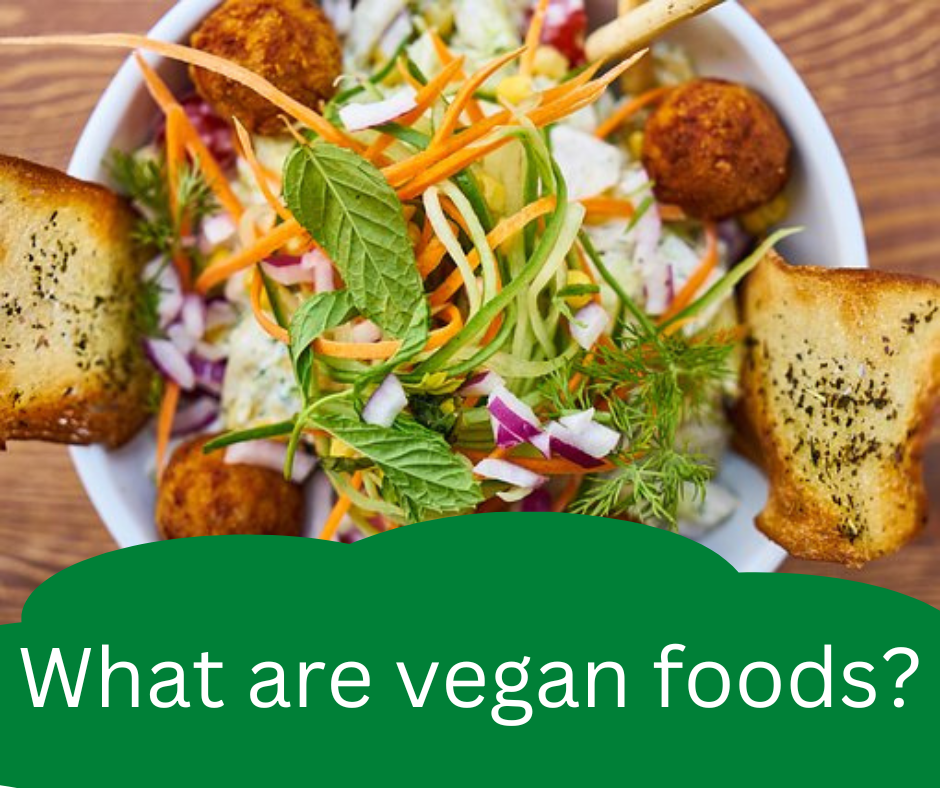
As we are conscious about our diet, being vegan means not eating non-vegetarian food in any form. We can see below some food varieties that are vegan.
Types of vegan
Vegans can be of four types mainly:
- Health vegans – focusing on a clean and healthy lifestyle.
- Environmental vegans – people who want to live a greener lifestyle and limit their impact on the planet
- Religious vegans – people who wish lo live a vegan diet as per their trust in religion.
- Ethical vegans – Vegan lovers who are against animal brutality.
If you are curious to know the most appropriate and jumbo variety of vegan foods, you’ve come to the perfect site. The list below will make you clear on the concept of what are vegan foods.
List of Vegan Foods:
- Almond milk
- Avocados
- Beans
- Bread
- Butter
- Cake
- Cheese
- Chocolate
- Coconut milk
- Dorm foods
- Egg replacer
- Fruits
- Gluten-free products
- Green smoothies
- Healthy fats and oils
- Herbs and Spices
- Honey
- Hummus
- Ice cream
- Juice
- Kale
- Legumes
- Macaroni
- Margarine
- Mayonnaise
- Nuts
- Nutritional yeast
- Parmesan cheese
- Pie
- Proteinshttps://priortizehealth.com/21-best-sources-of-protein-for-vegetarians/
- Quinoa
- Raw food
- Rice
- Seitan
- Soy milk
- Sorbet
- Sushi
- Tahini
- Tempeh
- Tofu
- Textured vegetable protein
- Vegetables
- Whole Grains
- Wine
- Yoghurt
Conclusion
Vegans believe that like humans, animals too have rights of live and freedom. Researchers suggest that plant-based food has more health benefits as compared to animal-based products. David Rogerson from Sheffield Hallam University found in his report that vegan food reduces the risks of cardiovascular diseases. He further explains that plant-based foods contain antioxidants, phytonutrients, and nitrates. Non-vegetarian food contains pro-inflammatory fats.
Climate change has emerged as one of the major problems across the world. Veganism supporters claim that the vegan food result in much stronger stomach as compared to the vegetarians and non-vegetarians.


